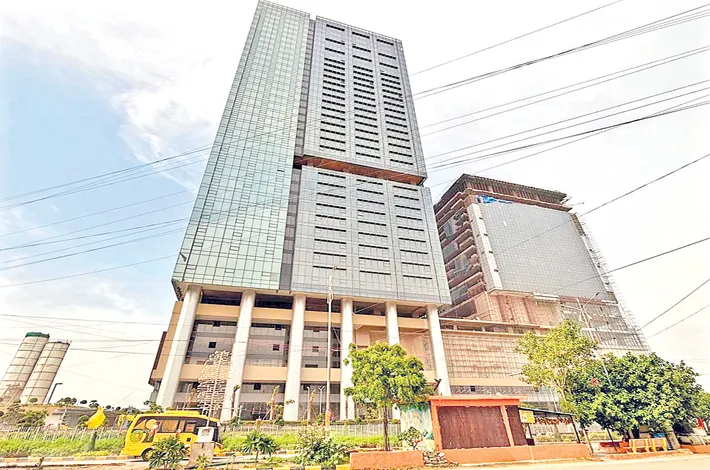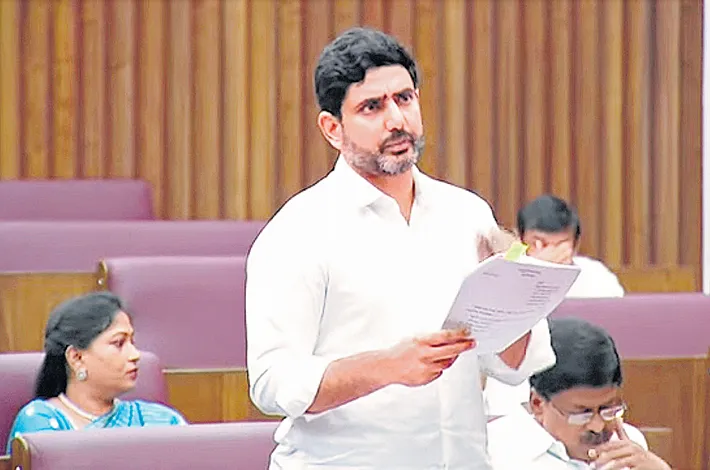Conspiracy, fraud allegations mar SAS tower
15-08-2025 12:00:00 AM

■ SAS Builders allege Singh concealed a gift of one-third land to his daughter before the Joint Development Agreement (JDA), causing delays. Singh denies this, claiming Rao knew about it all along.
■ Singh accuses Rao of illegally selling 6.5 lakh sq. ft. of project space before finalizing legal agreements, allegedly violating RERA norms.
■ Rao allegedly filed a court case using a falsified legal authorization on behalf of Singh, without consent.
■ Singh claims Rao forged a letter and sent it to a wrong address to mislead the court.
■ Implications for Real Estate: The case highlights gaps in RERA enforcement and the urgent need for transparency in real estate dealings.
metro india news I hyderabad
A high-profile legal battle has erupted over the stalled SAS Tower project in Hyderabad, with serious allegations of fraud, conspiracy, and financial mismanagement leveled by both the landowner, former IAS officer R.P. Singh, and the developer, SAS Builders, represented by G.V. Rao. The dispute, centered around a Joint Development Agreement (JDA) for the construction of the SAS Tower, has drawn attention to potential violations of real estate regulations, forged documents, and attempts to manipulate stakeholders, including flat buyers. The case has sparked calls for a thorough investigation by state authorities to protect the interests of all parties involved and to prevent similar disputes in the future.
The controversy began when SAS Builders, represented by G.V. Rao, filed a criminal case against R.P. Singh, accusing him of concealing the gifting of one-third of the project’s land to his daughter, Chetna Kaur, prior to signing the JDA. According to Rao, this omission caused significant delays in the project, leading to financial losses for both the developer and the flat buyers who had invested in the SAS Tower. Rao claimed that the undisclosed gift deed disrupted the project timeline, forcing him to seek an extension from the Real Estate Regulatory Authority (RERA) to complete the construction.
However, R.P. Singh has vehemently denied these allegations, accusing Rao of orchestrating a conspiracy to cover up his own failures in delivering the flats on time. Singh claims that Rao is using the gift deed issue as a pretext to negotiate a reduction in the landowner’s agreed-upon share of the project area and to deflect blame for delays. Singh asserts that Rao was fully aware of the gift deed to Chetna Kaur before the JDA was signed, contradicting the developer’s narrative. Furthermore, Singh alleges that Rao has engaged in fraudulent practices, including forging documents and siphoning off funds, to the detriment of both the landowner and the flat buyers.
One of the most damning accusations against Rao involves the sale of approximately 6.5 lakh square feet of the project area before the Development Agreement-General Power of Attorney (DA-GPA) was finalized with the landowner. This action, according to Singh, violates RERA regulations, which prohibit developers from selling project areas without proper agreements in place. Singh claims that these premature sales enabled Rao to siphon off substantial funds, further delaying the project and jeopardizing the financial interests of flat buyers.
Adding to the allegations of fraud, Singh has accused Rao of signing a Vakalatnama (legal authorization) on behalf of the landowner to file a court case against one of the project’s investors, Sr. Govindha Chary, without Singh’s knowledge or consent. Singh describes this as a deliberate act of fraud intended to blackmail him into reducing his share of the project area. Additionally, Singh alleges that Rao falsely claimed ignorance of Chetna Kaur’s death, despite having attended her funeral, further undermining the developer’s credibility. Singh also confirmed that he legally canceled the gift deed in accordance with the Hindu Succession Act, nullifying Rao’s claims about the land transfer.
The accusations extend to falsified documentation, with Singh alleging that Rao fabricated a letter dated August 19, 2022, and deliberately sent it to an incorrect address to mislead the court and other stakeholders. Singh contends that this was part of a broader strategy by Rao to manipulate the narrative and pressure the landowner into acquiescing to his demands. According to Singh, when these efforts to blackmail him failed, Rao resorted to instigating a proxy, identified as Chakradhari, to create confusion among flat buyers and turn them against the landowner.
The scale of the alleged misconduct has raised serious concerns about the integrity of the SAS Tower project and the broader real estate sector in Hyderabad. Metro India, a local news outlet, has described the situation as “critical,” emphasizing the significant financial stakes for flat buyers, the landowner, and the developer. The outlet has called for a comprehensive investigation by state authorities to uncover the truth behind the allegations and to hold those responsible accountable. Such an investigation, Metro India argues, is essential to deter similar fraudulent practices in future real estate projects and to restore public confidence in the industry.
The SAS Tower dispute highlights the complexities and risks associated with large-scale real estate developments, particularly when trust between stakeholders breaks down. For flat buyers, many of whom have invested their life savings in the project, the delays and legal wrangling have caused significant distress. The allegations of fund siphoning and forged documents further erode confidence in the developer’s ability to deliver on promises, raising questions about the enforcement of RERA regulations designed to protect homebuyers.
R.P. Singh has urged the state government to intervene swiftly, emphasizing that the alleged actions of G.V. Rao and SAS Builders constitute a serious breach of trust and legal obligations. He has called for a probe into the financial transactions related to the project, particularly the premature sale of 6.5 lakh square feet of area, which he claims was done without proper authorization. Singh also seeks accountability for the forged Vakalatnama and the fabricated letter, which he believes were intended to mislead the court and manipulate the project’s stakeholders.
On the other hand, G.V. Rao and SAS Builders maintain that the delays were caused by the landowner’s failure to disclose critical information about the gift deed, which disrupted the project’s legal and financial framework. Rao insists that his actions were aimed at protecting the interests of the flat buyers and ensuring the project’s completion, albeit with delays necessitated by unforeseen complications.
As the legal battle unfolds, the SAS Tower controversy serves as a cautionary tale for the real estate industry in Hyderabad and beyond. The allegations of conspiracy, fraud, and financial mismanagement underscore the need for stricter oversight and transparency in real estate transactions. For now, the flat buyers, landowner, and developer remain locked in a contentious dispute, with the resolution likely to hinge on the findings of any investigation conducted by the state government.
The case has also sparked broader discussions about the enforcement of RERA regulations and the mechanisms in place to protect homebuyers from unscrupulous developers. With the stakes so high, the outcome of this dispute could set a precedent for how similar cases are handled in the future, potentially shaping the real estate landscape in Telangana and beyond.
As the situation develops, all eyes will be on the state authorities to conduct a thorough and impartial investigation into the allegations. The flat buyers, many of whom are anxiously awaiting the completion of their homes, hope for a resolution that prioritizes their interests and holds those responsible for any wrongdoing accountable. For now, the SAS Tower remains a symbol of the challenges and pitfalls that can arise when trust and transparency are absent in large-scale real estate ventures.








